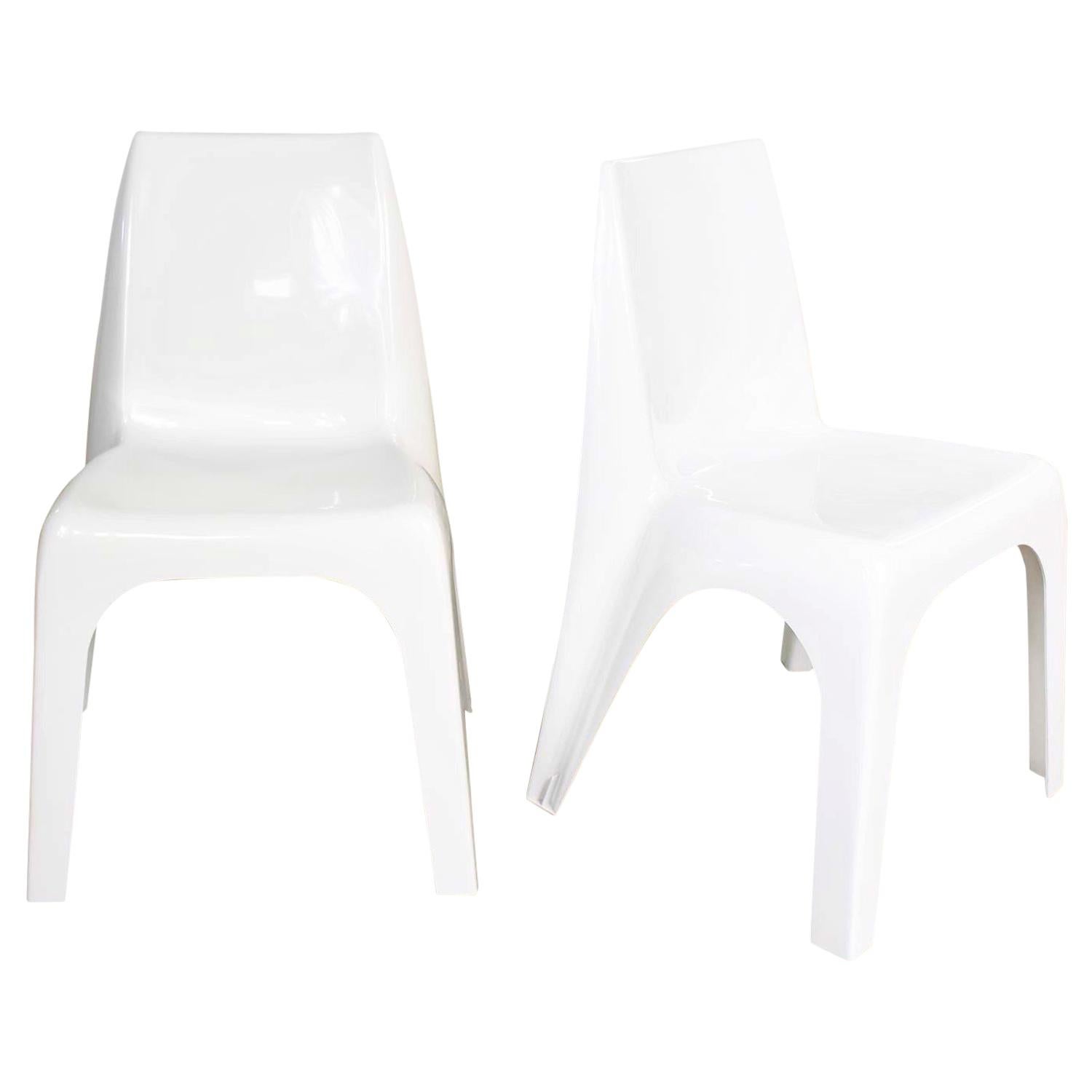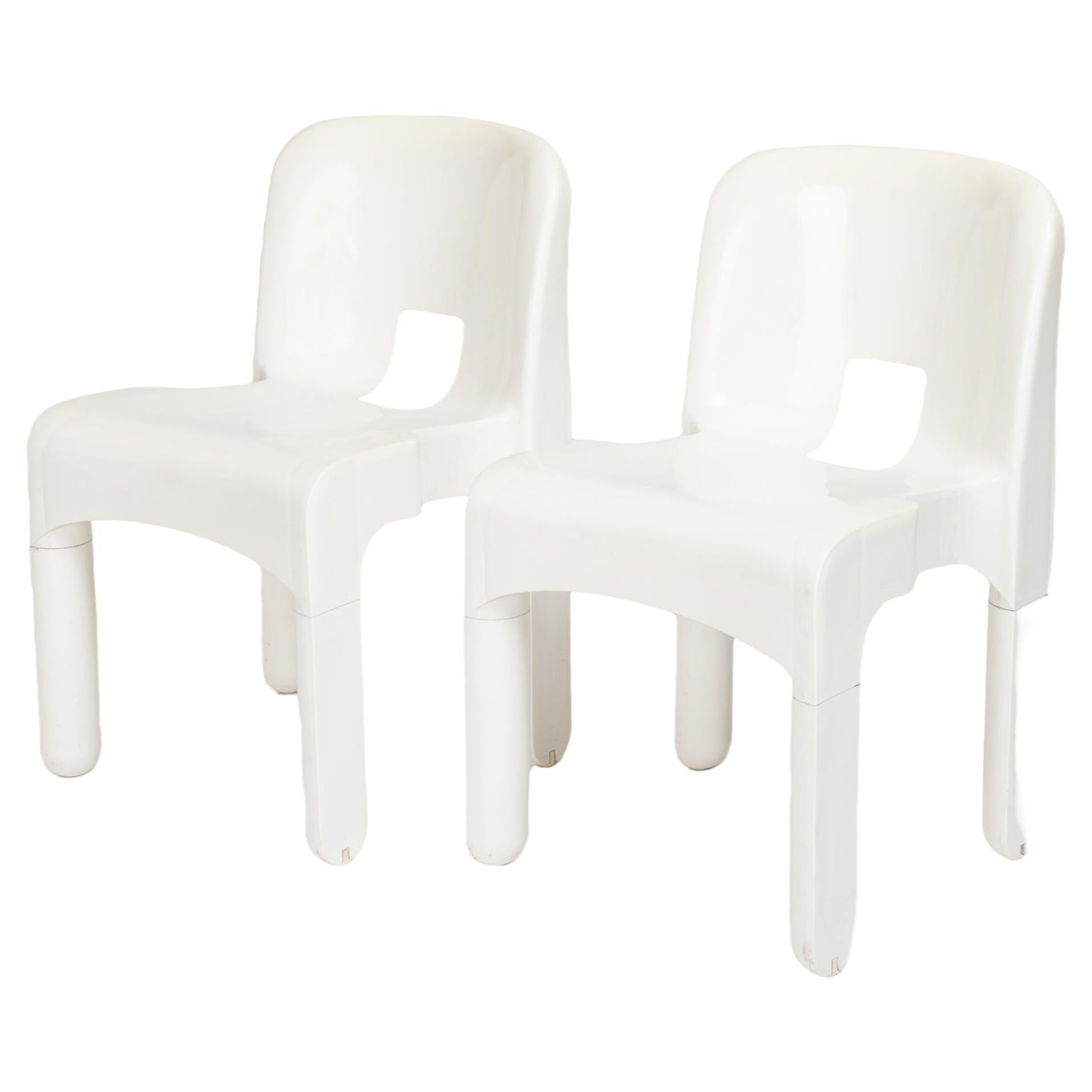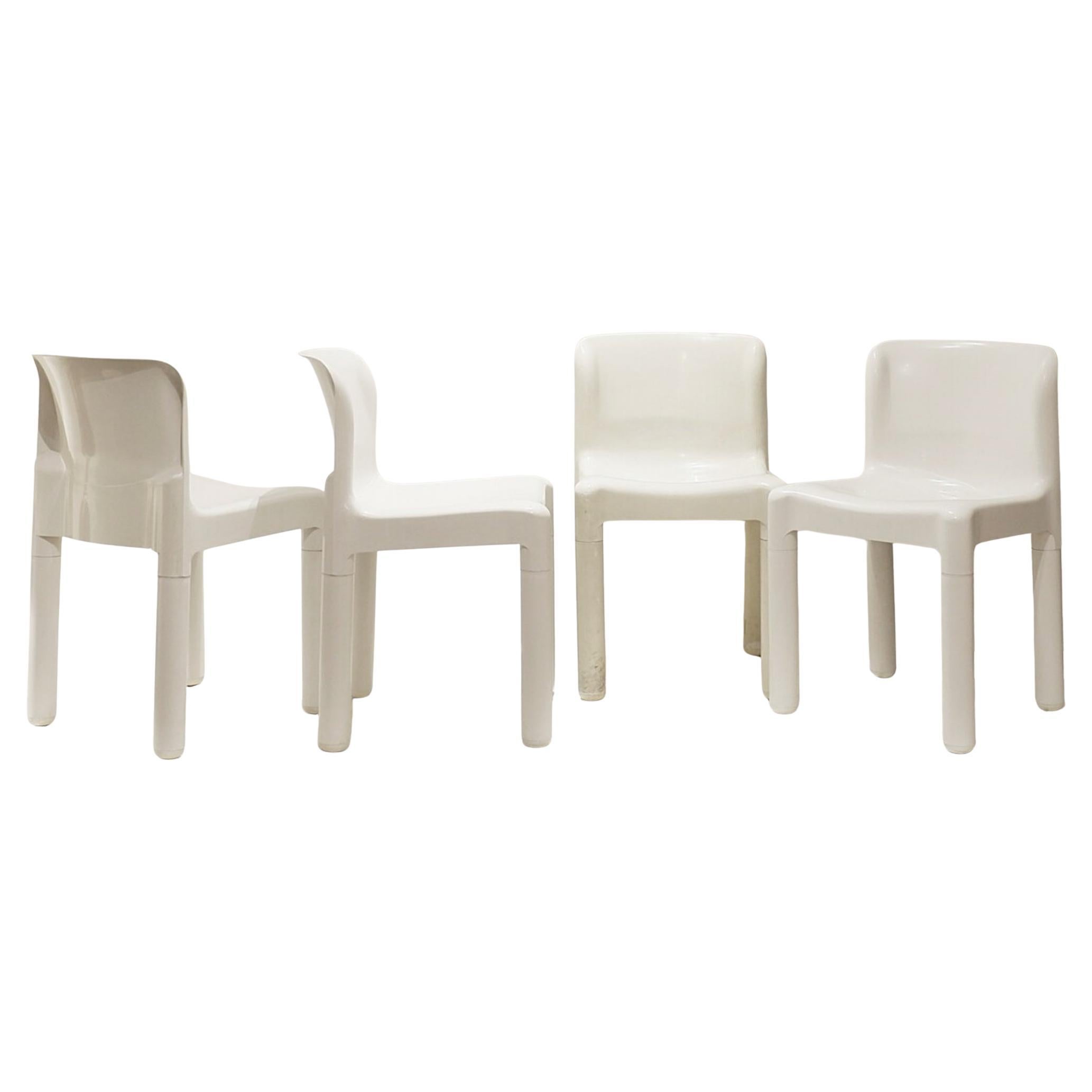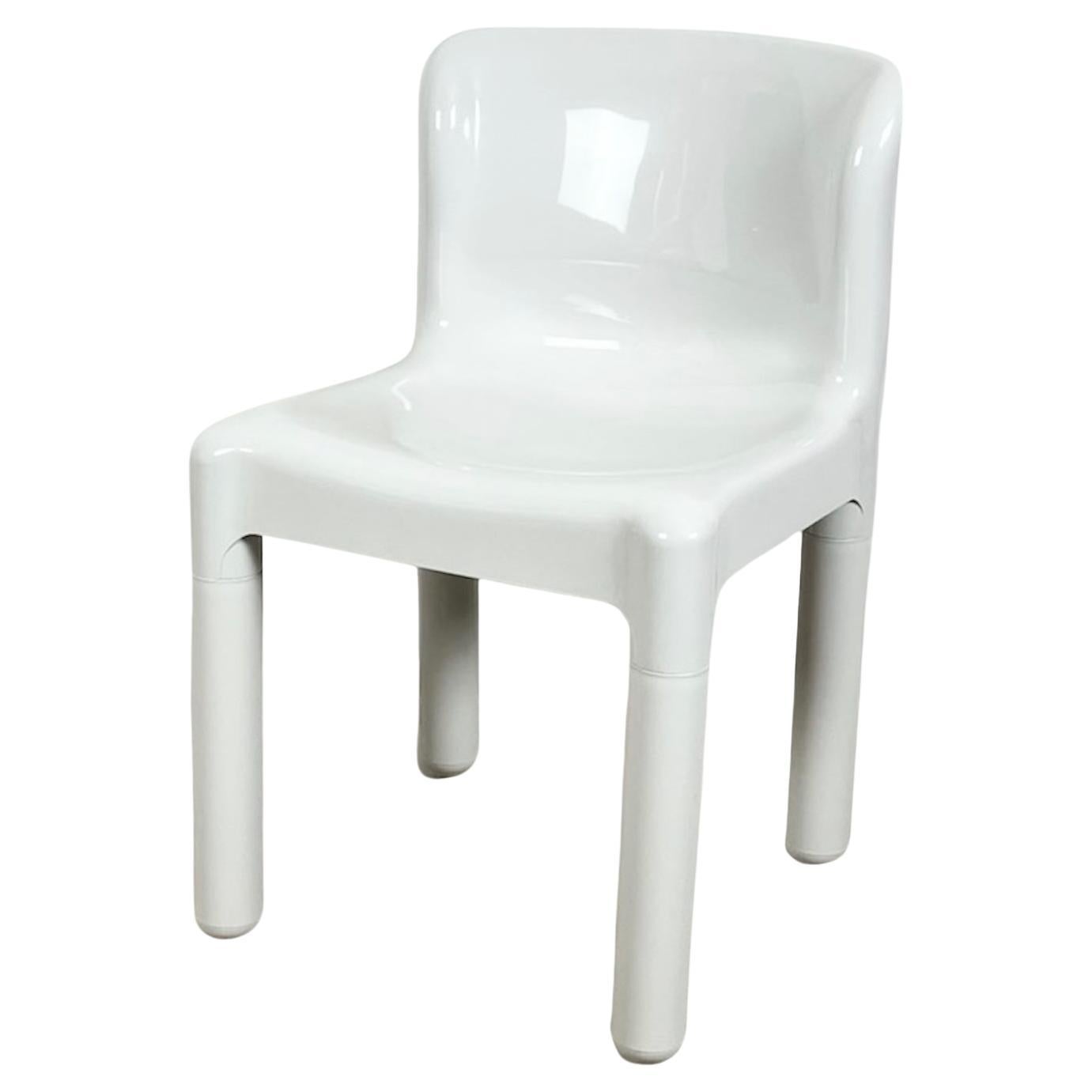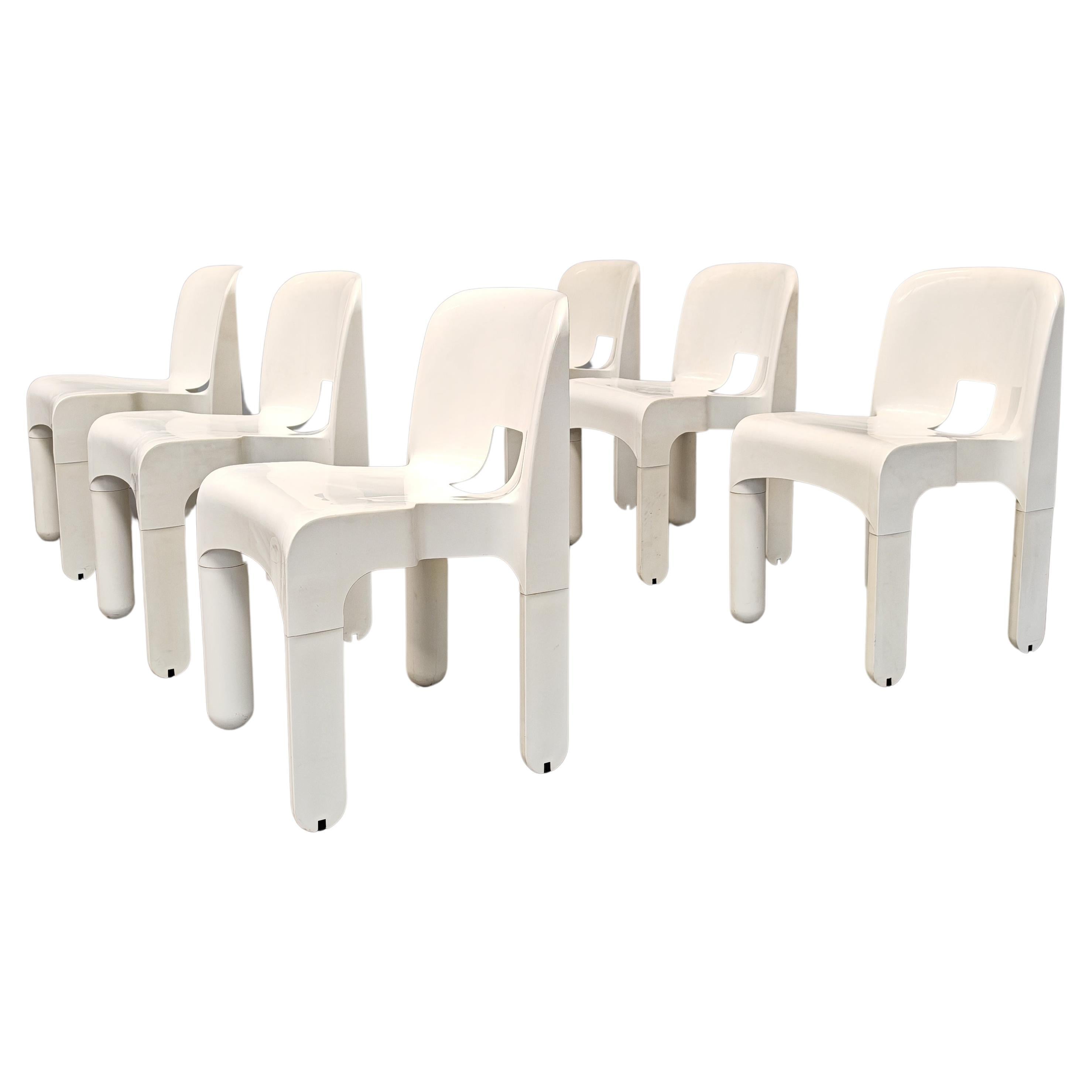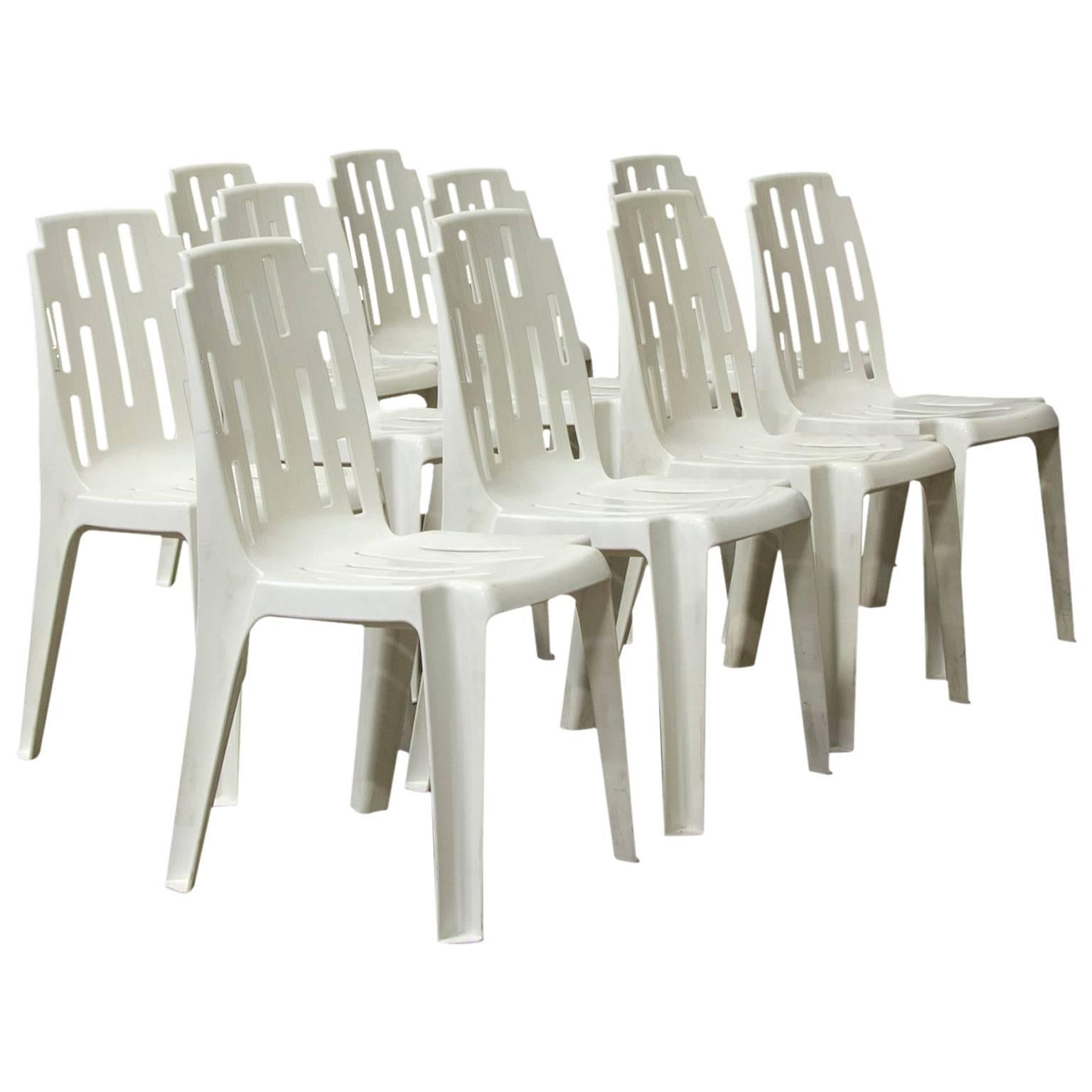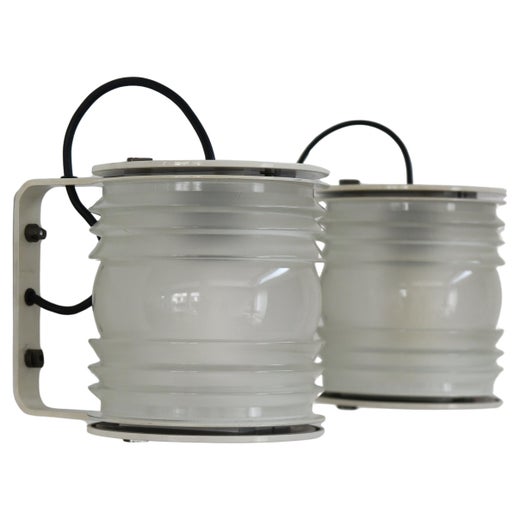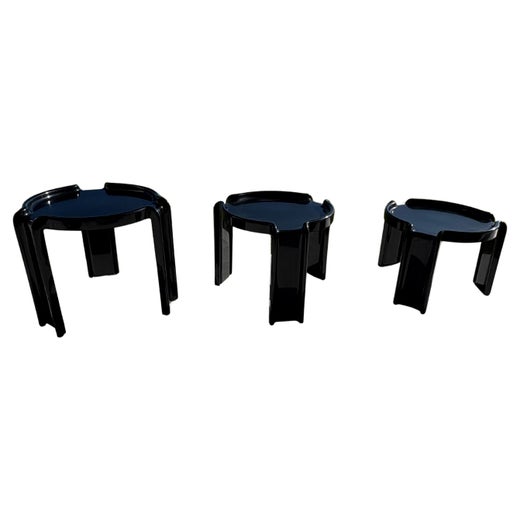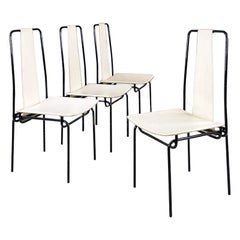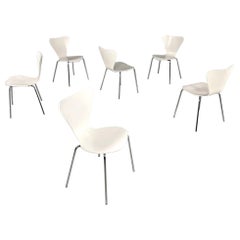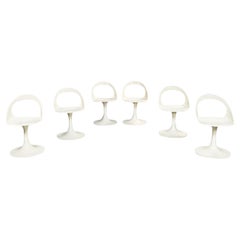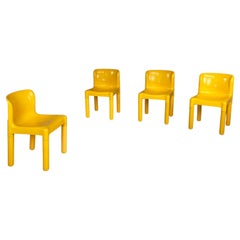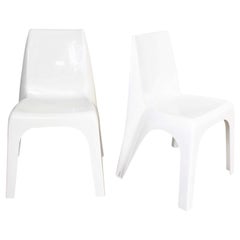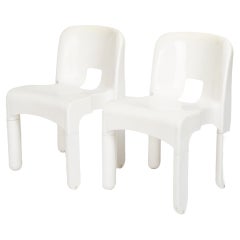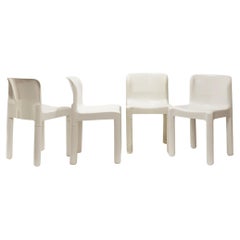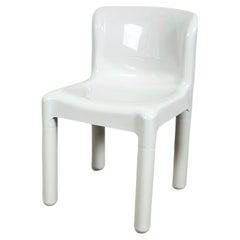Italian modern white plastic 860 Universale Chairs, Joe Colombo, Kartell, 1970s
About the Item
- Creator:Kartell (Manufacturer),Joe Colombo (Designer)
- Dimensions:Height: 27.56 in (70 cm)Width: 16.93 in (43 cm)Depth: 19.69 in (50 cm)Seat Height: 17.13 in (43.5 cm)
- Sold As:Set of 4
- Style:Modern (Of the Period)
- Materials and Techniques:
- Place of Origin:
- Period:
- Date of Manufacture:1967
- Condition:Good conditions, with signs and scratches from time. In patina.
- Seller Location:MIlano, IT
- Reference Number:Seller: 22200016861stDibs: LU4860239112672
Joe Colombo
He died tragically young, and his career as a designer lasted little more than 10 years. But through the 1960s, Joe Colombo proved himself one of the field’s most provocative and original thinkers, and he produced a remarkably large array of innovative chairs, table lamps and other lighting and furniture as well as product designs. Even today, the creations of Joe Colombo have the power to surprise.
Cesare “Joe” Colombo was born in Milan, the son of an electrical-components manufacturer. He was a creative child — he loved to build huge structures from Meccano pieces — and in college he studied painting and sculpture before switching to architecture.
In the early 1950s, Colombo made and exhibited paintings and sculptures as part of an art movement that responded to the new Nuclear Age, and futuristic thinking would inform his entire career. He took up design not long after his father fell ill in 1958, and he and his brother, Gianni, were called upon to run the family company.
Colombo expanded the business to include the making of plastics — a primary material in almost all his later designs. One of his first, made in collaboration with his brother, was the Acrilica table lamp (1962), composed of a wave-shaped piece of clear acrylic resin that diffused light cast by a bulb concealed in the lamp’s metal base. A year later, Colombo produced his best-known furniture design, the Elda armchair (1963): a modernist wingback chair with a womb-like plastic frame upholstered in thick leather pads.
Portability and adaptability were keynotes of many Colombo designs, made for a more mobile society in which people would take their living environments with them. One of his most striking pieces is the Tube chair (1969). It comprises four foam-padded plastic cylinders that fit inside one another. The components, which are held together by metal clips, can be configured in a variety of seating shapes (his Additional Living System seating is similarly versatile).
Vintage Tube chairs generally sell for about $9,000 in good condition; Elda chairs for about $7,000. A small Colombo design such as the plastic Boby trolley — an office organizer on wheels, designed in 1970 — is priced in the range of $700.
As Colombo intended, his designs are best suited to a modern decor. If your tastes run to sleek, glossy Space Age looks, the work of Joe Colombo offers you a myriad of choices.
Find vintage Joe Colombo lamps, seating and other furniture for sale on 1stDibs.
Kartell
The Italian design giant Kartell transformed plastic from the stuff of humble household goods into a staple of luxury design in the 1960s. Founded in Milan by Italian chemical engineer Giulio Castelli (1920–2006) and his wife Anna Ferrieri (1918–2006), Kartell began as an industrial design firm, producing useful items like ski racks for automobiles and laboratory equipment designed to replace breakable glass with sturdy plastic. Even as companies like Olivetti and Vespa were making Italian design popular in the 1950s, typewriters and scooters were relatively costly, and Castelli and Ferrieri wanted to provide Italian consumers with affordable, stylish goods.
They launched a housewares division of Kartell in 1953, making lighting fixtures and kitchen tools and accessories from colorful molded plastic. Consumers in the postwar era were initially skeptical of plastic goods, but their affordability and infinite range of styles and hues eventually won devotees. Tupperware parties in the United States made plastic storage containers ubiquitous in postwar homes, and Kartell’s ingenious designs for juicers, dustpans, and dish racks conquered Europe. Kartell designer Gino Colombini was responsible for many of these early products, and his design for the KS 1146 Bucket won the Compasso d’Oro prize in 1955.
Buoyed by its success in the home goods market, Kartell introduced its Habitat division in 1963. Designers Marco Zanuso and Richard Sapper created the K1340 (later called the K 4999) children’s chair that year, and families enjoyed their bright colors and light weight, which made them easy for kids to pick up and move. In 1965, Joe Colombo (1924–78) created one of Kartell’s few pieces of non-plastic furniture, the 4801 chair, which sits low to the ground and comprised of just three curved pieces of plywood. (In 2012, Kartell reissued the chair in plastic.) Colombo followed up on the success of the 4801 with the iconic 4867 Universal Chair in 1967, which, like Verner Panton’s S chair, is made from a single piece of plastic. The colorful, stackable injection-molded chair was an instant classic. That same year, Kartell introduced Colombo’s KD27 table lamp. Ferrierei’s cylindrical 4966 Componibili storage module debuted in 1969.
Kartell achieved international recognition for its innovative work in 1972, when a landmark exhibition curated by Emilio Ambasz called “Italy: The New Domestic Landscape” opened at New York’s Museum of Modern Art. That show introduced American audiences to the work of designers such as Gaetano Pesce; Ettore Sottsass, founder of the Memphis Group; and the firms Archizoom and Superstudio (both firms were among Italy's Radical design groups) — all of whom were using wit, humor and unorthodox materials to create a bracingly original interior aesthetic.
Castelli and Ferrieri sold Kartell to Claudio Luti, their son-in-law, in 1988, and since then, Luti has expanded the company’s roster of designers.
Kartell produced Ron Arad’s Bookworm wall shelf in 1994, and Philippe Starck’s La Marie chair in 1998. More recently, Kartell has collaborated with the Japanese collective Nendo, Spanish architect Patricia Urquiola and glass designer Tokujin Yoshioka, among many others. Kartell classics can be found in museums around the world, including MoMA, the Victoria and Albert Museum and the Cooper Hewitt, Smithsonian Design Museum. In 1999, Claudio Luti established the Museo Kartell to tell the company’s story, through key objects from its innovative and colorful history.
Find vintage Kartell tables, seating, table lamps and other furniture on 1stDibs.
- ShippingRetrieving quote...Shipping from: Milan, Italy
- Return Policy
More From This Seller
View AllVintage 1980s Italian Modern Chairs
Metal
Vintage 1970s Italian Modern Chairs
Metal
Vintage 1970s Italian Space Age Living Room Sets
Plastic
Vintage 1970s Italian Modern Chairs
Plastic
Vintage 1960s Italian Mid-Century Modern Chairs
Metal, Steel
Vintage 1960s Italian Mid-Century Modern Chairs
Fabric, Wood
You May Also Like
Vintage 1970s American Modern Side Chairs
Plastic
Vintage 1970s Italian Space Age Chairs
Plastic
Mid-20th Century Italian Mid-Century Modern Chairs
Plastic
Vintage 1970s Italian Industrial Chairs
Plastic
Late 20th Century Chairs
Plastic
Vintage 1970s French Mid-Century Modern Side Chairs
Plastic
